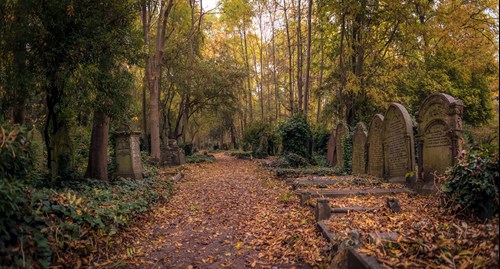Victorian England: history, literature, and the arts
Programme two, option one:
This module will address the topic of ‘Progress’ to examine the Victorian period’s dialogue with its past, its present and its future. Famed as inventors, entrepreneurs and innovators, the Victorians pushed for ‘progress’ in many areas: in the technological innovation that drove the Industrial era and opened up the country via the railways, and in the social philanthropy that brought significant improvement in the condition of the poor and public health.
Yet innovative as they were, the Victorians felt the precarity of their modernity and often looked wistfully to past eras in pre-Industrial history to contrast to the dizzying experience of a fast-developing and changing world. As well as addressing Victorian innovation and ‘Progress’, this module will also address the Victorian uses of the Past as responses to the fear and uncertainties of the Victorian present.

Learning outcomes
- Be able to identify and show an understanding of key historical and cultural changes in Britain during the Victorian period.
- Be able to exchange and debate their own ideas with other members of the class and with the course tutors,
- Demonstrate their critical understanding of the Victorians’ dialogue with ideas of ‘Progress’ through the various module assessments.
- Gain a critical understanding of cultural heritage issues through experience and evaluation of Victorian heritage sites in London and the surrounding area.
Weekly topics and Field work
Proposed field trips for Victorian England: history, literature, and the arts
The Victorian public health crisis
Trip to Florence Nightingale Museum
Crime and Punishment in Victorian England
Trip to Newgate Prison
The Victorian dialogue with the past
Trip to 221b Baker Street

Assessment information
Presentation (40%)
Reflective Journal (30%)
Weekly Quizzes (30%)
The course is worth 15 UK credits/ 7.5 ECTS, which translates to between 3 and 4 US credits. Please note it is your responsibility to check that your home institution will accept transfer of these credits back as part of your degree programme.
Indicative bibliography
Arthur Conan Doyle, Selected Sherlock Holmes stories
Charles Dickens, ‘Nightwalks’; ‘On Duty with Inspector Field’
Henry Mayhew, London Labour and the London Poor, excerpts
Charles Booth, Life and Labour of the People in London, excerpts
Jan Marsh, The Pre-Raphaelite Sisterhood
Michel Foucault, Discipline and Punish: The Birth of the Prison




















